e-Health governance bodies, such as IDIKA and NeHA; universities, such as AUTH, UTH; non-profit organisations, such as HL7 Hellas, IHE Europe, IHE catalyst, HDHC, Elevit, HTA International, HHI, UNINOVA, EUPHA, as well as several European projects (Xt-EHR Joint Action, EUVac, i2X, hELLENic heAlth@eu “ELLENA”, GR-HDAB, smartHEALTH, COMFORTage, POTENTIAL, SUSA, XiA, ManagiDith, Gravitate-Health, PATHeD, NEHR/Cancer, EUNET CCC, eCAN ΙΙ Joint Action, myHealth@myHands etc.) are brought together in one venue to interconnect, share outcomes and discuss further steps towards adopting and implementing digital technology in healthcare in Europe.

IDIKA S.A. (e-Government Center for Social Security Services) is the leading governmental organization in Greece, acting as the National Contact Point for eHealth (NCPeH) for all EU and cross border activities in Greece, for both primary and secondary use of health data. IDIKA is also the Operator of Governmental Cloud eHealth infrastructure that runs most of operational eHealth systems such as the National ePrescription, the myHealth app, patient registries, the national electronic health record and many more to come. IDIKA will be the custodian of the necessary digital healthcare transformation ecosystem necessary to transform healthcare with the support of modern and innovative digital tools.
NeHA (National e-Health Authority (NeHA) of Cyprus) is a legal person of public service established by Cyprus law. NeHA is thus, the National eHealth Competence Authority for digital healthcare in Cyprus and the eHealth (NCPeH) for all cross-border activities in Cyprus, for both primary and secondary use of health data. NeHA is an institution already compliant in many respects with the upcoming new European Health Data Space (EHDS) Regulation. NeHA is responsible for the building, and operating the system which will implement the national electronic health record of the citizen which will be owned by the citizen and become transparent to all healthcare providers. NeHA is the coordinator of the EU joint action Xt-EHR, which has undertaken the implementation of the EHDS regulation for primary use of health data.
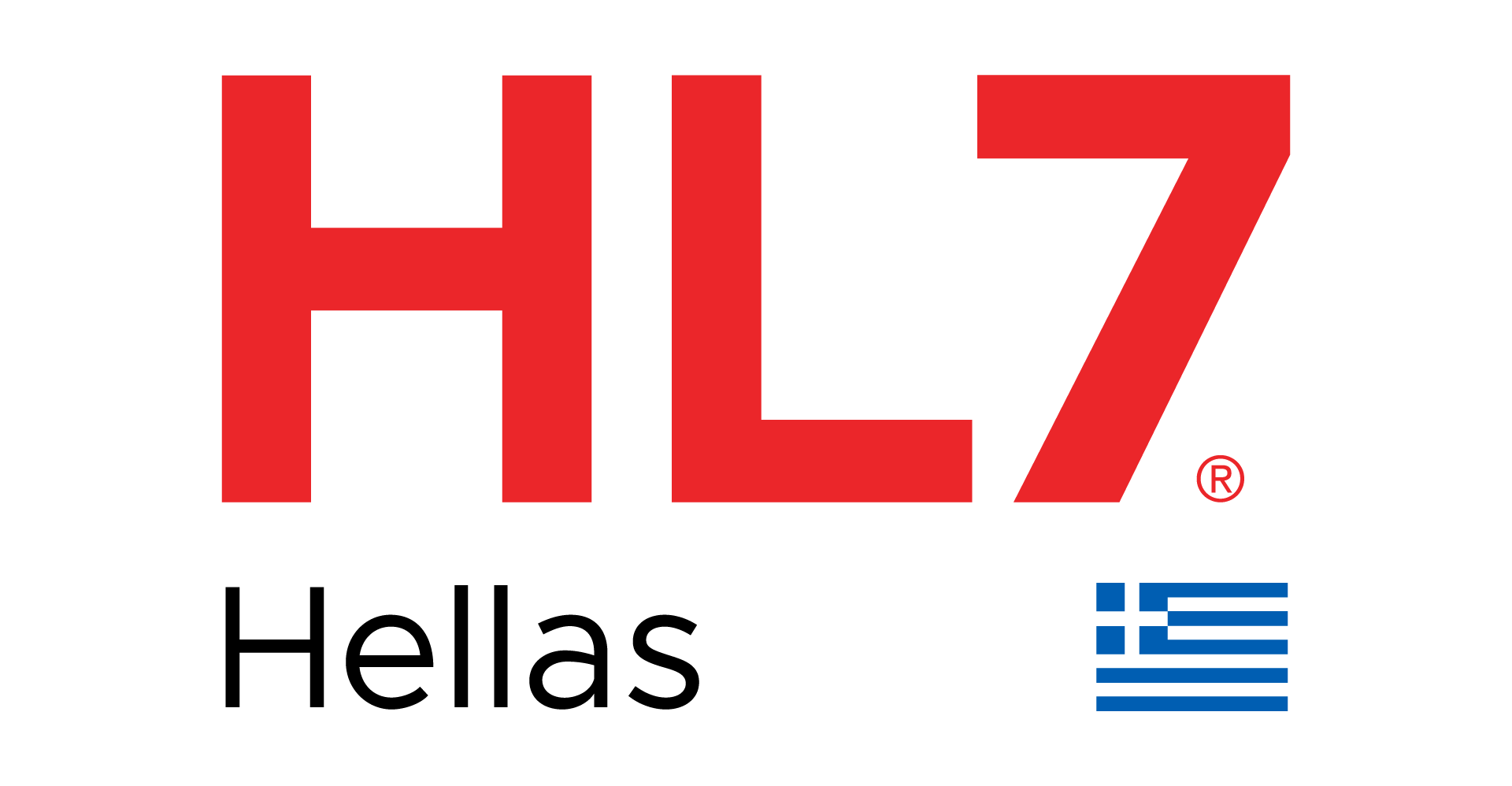
HL7 Hellas as a non-profit Organization was established with the sole purpose of promoting communication standards within the Greek territory and in the countries of Southeast Europe. HL7 Hellas is the non-profit affiliate of HL7 International, an organization that aims to spread reliable standards for healthcare data exchange. It helps the management and integration of data related to patient clinical care as well as the evaluation and further development of the HL7 standard protocols.
HL7 Hellas encourages the creation of flexible standards, guidelines, methodologies, and protocols. It also helps with any other related services and products, based on those of the International Organisation. Finally, it aims to continuously research for further development related to the improvement of the standards.
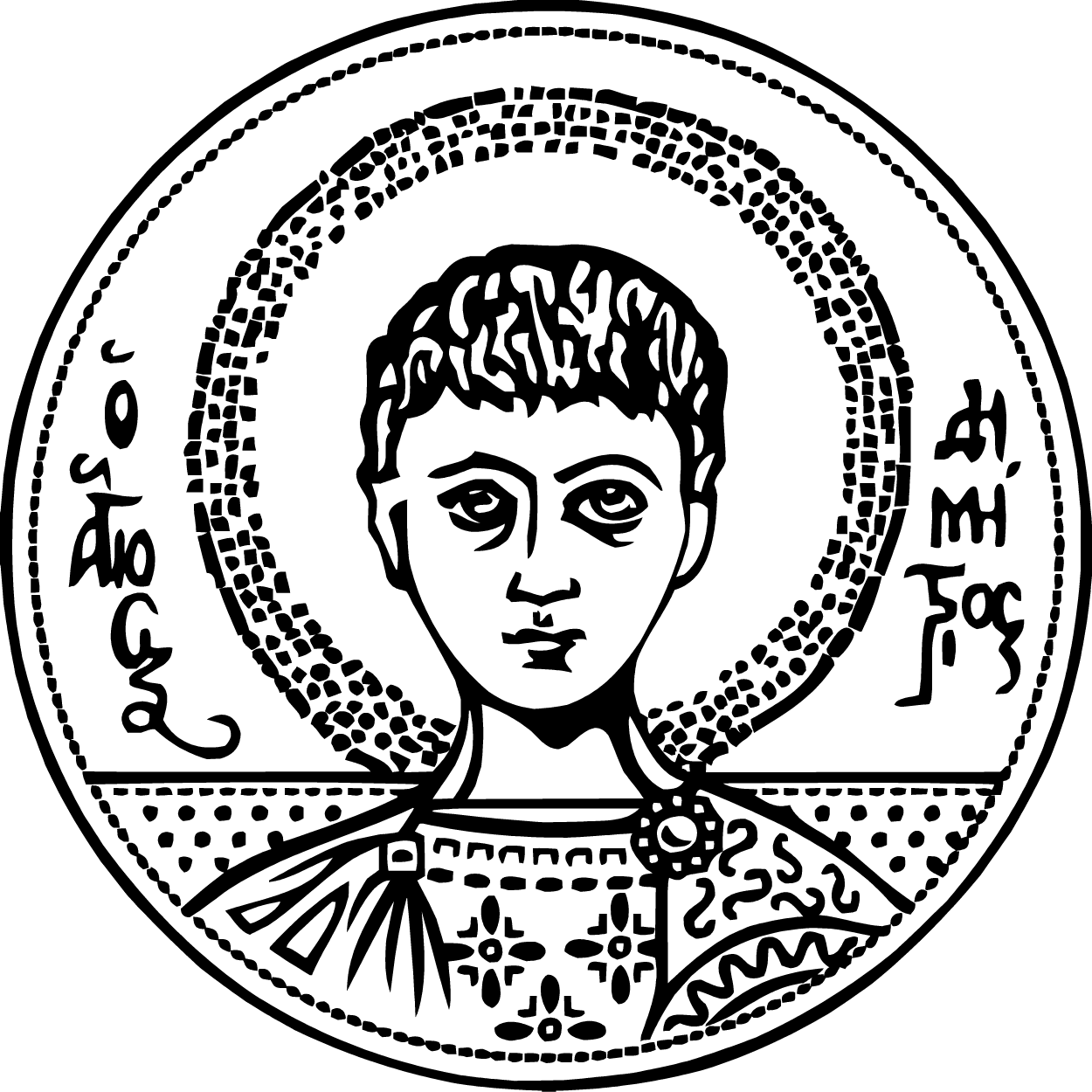
Aristotle University of Thessaloniki (AUTH), through its Medical Physics and Digital Innovation Lab, plays a pivotal role in shaping the future of healthcare education by actively participating in the development of the managiDiTH master’s programme. AUTH is a key contributor within the multinational consortium committed to creating an innovative master’s degree curriculum. This collaborative effort involves four esteemed European universities, uniting to address the dynamic changes in the health sector.
CEN, the European Committee for Standardization, is an association that brings together the National Standardization Bodies of 34 European countries.
CEN provides a platform for the development of European Standards and other technical documents in relation to various kinds of products, materials, services, and processes.
CEN supports standardization activities in relation to a wide range of fields and sectors including air and space, chemicals, construction, consumer products, defense and security, energy, the environment, food and feed, health and safety, healthcare, ICT, machinery, materials, pressure equipment, services, smart living, transport and packaging.
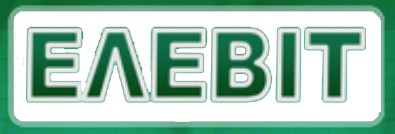
The Hellenic Society for Biomedical Technology (ELEVIT) is a scientific association dedicated to advancing technological solutions in biomedical sciences. Its primary mission is to strengthen research and promote education in the field of Biomedical Technology. ELEVIT organizes and supports scientific events, including conferences, workshops, and seminars, providing opportunities for the documentation of activities and advances both in Greece and internationally. These events also serve for discussing challenges and exploring prospects in the rapidly evolving field of Biomedical Technology and Clinical Engineering.
ELEVIT is a member of the International Federation for Medical and Biological Engineering (IFMBE), the European Alliance for Medical and Biological Engineering & Science (EAMBES), and the Global Clinical Engineering Alliance (GCEA).

The European Public Health Association, or EUPHA, is an umbrella organisation for public health associations and institutes in Europe. EUPHA was founded in 1992 by 15 members (12 countries). EUPHA now has 83 members from 47 countries: 45 national associations of public health; 28 institutional members; 7 individual members; 2 global members.
EUPHA is an international, multidisciplinary, scientific organisation. Our network brings together over 32,000 public health professionals.

The Hellenic Digital Health Cluster -HDHC- was founded in March 2021 and is based in Athens, Greece. It is a dynamic initiative of the Foundation for Research and Technology – Hellas (FORTH) that aims to include Greece among the leading countries in the field of digital health internationally.
The HDHC ecosystem includes 30 innovative and dynamic companies of the digital health ecosystem in Greece and internationally, as well as FORTH.
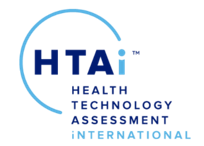
HTAi is a professional society with an international community of members including academics, public & private organizations, health professionals, students, patients, and citizens. HTAi’s members are dedicated to shaping the future of health systems and improving health outcomes for all people.
Through scientific development, advocacy, member events, capacity building, and networking, HTAi creates a neutral platform for all those with an interest in Health Technology Assessment (HTA) to facilitate global collaboration, strategic discussions and knowledge mobilization that will accelerate innovation and impact in HTA around the world.
Human Health Intelligence is an organization dedicated to the development of frameworks and methodologies that facilitate the incorporation of advanced technologies and scientific innovations, aiming to improve the transformation and optimization of healthcare services.
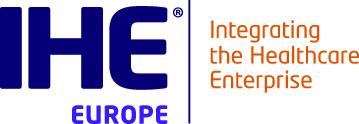
Integrating the Healthcare Enterprise (IHE) is an initiative by healthcare professionals and industry to improve the way computer systems in healthcare share information. IHE promotes the coordinated use of established standards such as DICOM and HL7 to address specific clinical needs in support of optimal patient care. Systems developed in accordance with IHE communicate with one another better, are easier to implement, and enable care providers to use information more effectively.
In Europe, IHE activities are supported by IHE-Europe, a non-profit organisation that promotes the IHE concepts in Europe, encourages the setting up of IHE Deployment Committees at national level, and organises, together with the national deployment committees, testing activities like the yearly IHE EU Connectathon.
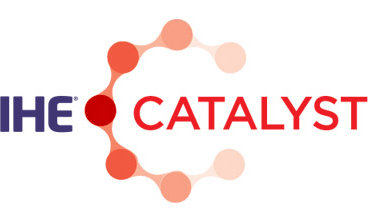
IHE Catalyst is a non-profit organisation set to accelerate deployment and adoption of IHE to deliver interoperability quality in Health, adding additional value to the IHE Ecosystem.
It has collected the heredity of IHE-Services in offering professional services to support IHE Members as well as national/regional authorities, local projects or any other organisations deploying IHE profiles for their e-health projects. IHE Catalyst is built upon a long experience in interoperability testing management and now provides the answer from IHE International to support Confidence about rigor testing, quality control testing provides the backbone for QUALITY in products and in deployments.

Instituto de Desenvolvimento de Novas Tecnologias (UNINOVA) is a multidisciplinary, independent, and non-profit research institute employing around 180 people, located in the metropolitan area of Lisbon. It was formed in 1986 by the Faculty of Sciences and Technology of the Nova University of Lisbon (FCT-UNL), a group of industrial associations, a financial holding, and up to 30 companies. It is an active partner of Madan Parque, a business facilitator and accelerator, incubating Micro and SMEs through several layers of support to entrepreneurial activity. The main aim of UNINOVA is to pursue excellence in scientific research, technical development, advanced training, and education.

The University of Thessaly (UTH), through its Intelligent Systems Laboratory (iSL), a research laboratory of the Department of Computer Science and Biomedical Informatics, is playing an important role in shaping the future of digital healthcare by actively participating in the development of various digital health projects, including UNICOM, XpandH and the Greek National Telemedicine Network.
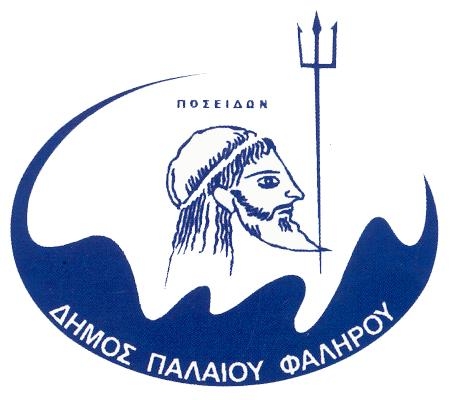
Palaio Faliro is a coastal municipality in the capital of Greece, Athens; we are one of the most active municipalities in Greece in the field of European projects, especially related to e-health, sustainability, social cohesion and solidarity, digital tourism and Smart Cities. Currently, Palaio Faliro is implementing a large-scale pilot in the HORIZON2020 Smart Bear digital health project and participates in the Intelligent Cities Challenge and the ESF project INTERACT (ESF-2023-HOMELESS, 101172611), which focuses on women’s homelessness, including that induced by lack or loss of employment. The municipality has been a very successful partner in e-health projects such as “Smart Care” and “Like stin Ygeia”, for which it has been awarded many distinctions in National competitions. The municipality has a specialized team of experts led by the Deputy Mayor of European projects, and the Deputy Mayor for Health Affairs.
Region of Peloponnese, Hellenic Republic – Directorate General for Public Health & Social Welfare – Directorate of Public Health.
The Region of Peloponnese is one of the thirteen Regions of Greece, with an area of 15.490 sq. km, a total population of about 540.000 inhabitants. It is composed of 5 large geographical units: Arcadia, Argolida, Corinthia, Lakonia, and Messinia.
The Region of Peloponnese invests in the enhancement of cooperation with the European Union, aiming to promote European values and exploit European resources for local development.
Peloponnese is one of the most active Regions in Greece in the field of European projects, particularly in the areas of e-Health, Sustainability, Social Cohesion and Solidarity, etc. It actively participates in more than 17 European programmes, thus ranking among the top Regions of Greece and demonstrating the regional authority’s strategy for the exploitation of European resources for the benefit of the local society and economy.



Palaio Faliro is a coastal municipality in the capital of Greece, Athens; we are one of the most active municipalities in Greece in the field of European projects, especially related to e-health, sustainability, social cohesion and solidarity, digital tourism and Smart Cities. Currently, Palaio Faliro is implementing a large-scale pilot in the HORIZON2020 Smart Bear digital health project and participates in the Intelligent Cities Challenge and the ESF project INTERACT (ESF-2023-HOMELESS, 101172611), which focuses on women’s homelessness, including that induced by lack or loss of employment. The municipality has been a very successful partner in e-health projects such as “Smart Care” and “Like stin Ygeia”, for which it has been awarded many distinctions in National competitions. The municipality has a specialized team of experts led by the Deputy Mayor of European projects, and the Deputy Mayor for Health Affairs.
Βio-Streams consists of a multi-pillar framework to address childhood obesity by building on an EU biobank, micro-moments and mobile recommendation systems. The project is funded by the European Union and has received funding from the Swiss State Secretariat for Education, Research and Innovation (SERI).
The COMFORT project (Computational Models FOR patienT stratification in urologic cancers – Creating robust and trustworthy multimodal AI for health care) aims to assist medical professionals in delivering improved care for people affected by prostate cancer or kidney cancer. The multidisciplinary research teams are developing a cutting-edge decision support system that uses artificial intelligence (AI) and data-driven insights.
COMFORTAGE is a joint effort of medical experts, social scientists and humanists, technical experts, Digital Innovation Hubs (DIHs) and Living Labs (LLs) to establish a pan-European framework for Community-based, Integrated and People-Centric prevention, monitoring and progression managing solutions for dementia and frailty.
The mission of the Horizon Europe project DIOPTRA is to use new technologies for colorectal cancer (CRC) risk assessment, screening, and progression while incorporating lifestyle and environmental factors to develop a unified holistic protocol for primary CRC screening using network modeling and Artificial Intelligence-based Decision Support System.
The eCAN JA provided a framework of recommendations for the integration of telemedicine and remote monitoring in health care systems. The main objective was to reduce cancer care inequalities across the European Union and to improve effectiveness, efficiency and quality in the prevention and cancer care, particularly for cross-border emergencies and health crises.
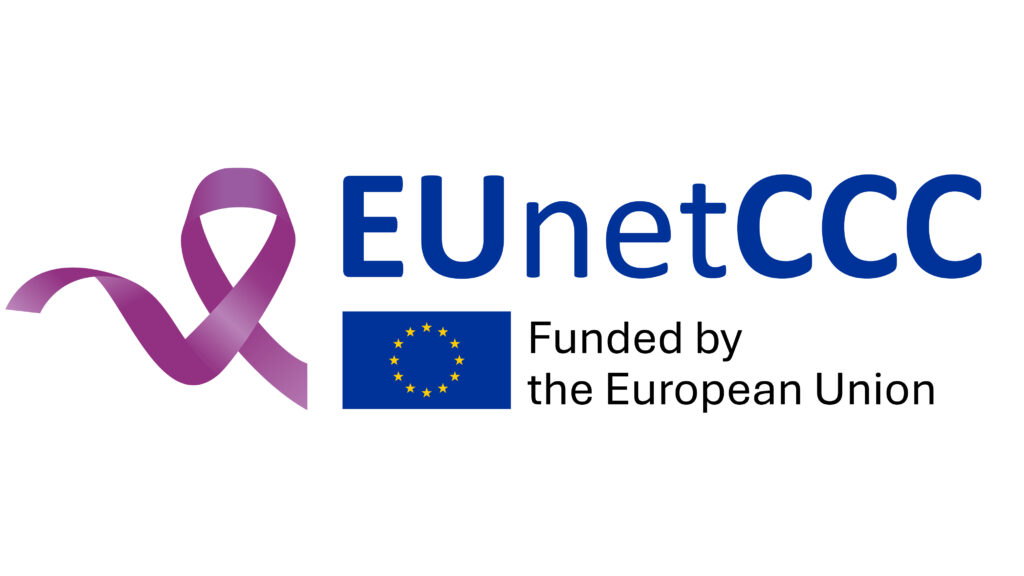

The establishment of the European Comprehensive Cancer Centre (EUCCC) network represents a harmonised and integrated approach to cancer care across the continent. The primary objective of the Joint Action EUnetCCC is to create a cohesive and integrated consortium of CCCs across Europe to ensure that all patients, regardless of their location, have access to high-quality care. This network will also serve as a platform for collaboration, allowing Comprehensive Cancer Centres to share best practices, resources, and knowledge.
xShare envisions everyone sharing their health data in EEHRxF with a click-of-a-button. The xShare button to be featured across health portals and patient apps and allow people to exercise their data portability rights under GDPR. Hence, the European EHRxF will be the driver for research and innovation in EHDS. xShare will establish the European EHRxF Standards and Policy Hub, the “Hub” partnership of six standards developing organizations (CEN/TC251, HL7 Europe, IHE Europe, SNOMED, CDISC, IEEE) market actors (DIGITAL Europe, MedTech-Europe and EUCROF), supported by competence centers, nationals and regional authorities and European SMEs.


The Xt-EHR JA aligns with the Commission’s commitment to a “Europe fit for the digital age” and advances the objectives of the EU4Health Programme by strengthening health systems. This initiative aims to foster collaboration among MS, including the European eHealth Member States Expert Group (eHMSEG) to enhance the interoperability and exchange of healthcare data. The project contributes to laying the groundwork for the improved primary use of electronic health data, particularly in anticipation of the upcoming European Health Data Space (EHDS) regulation.


Gravitate-Health is a public – private partnership with 45 members from Europe and the US, co-led by University of Oslo and Pfizer, funded by the Innovative Medicines Initiative (IMI) – a joint undertaking of the European Commission, the European Federation of Pharmaceutical Industries and Associations (EFPIA), IMI2 Associated Partners.
The project’s mission is to equip and empower citizens with digital information tools that make them confident, active, and responsive in their patient journey, specifically encouraging safe use of medicines for better health outcomes and quality of life.
The primary objective of the GR-HDAB project is the establishment of a National Health Data Access Body (HDAB) and the development of the necessary national infrastructure to support and promote the secondary use of health data, as well as the secure interconnection with the corresponding European centralised cross-border infrastructure HealthData@EU. The objectives set concern the establishment of national services and infrastructure: setting up a functional health data access body and providing services and infrastructure enabling interaction between this body, data holders and data users. Coordinated by the Hellenic Ministry of Health, participating partners are GRNET, e-Government Center for Social Security (IDIKA) and the Hellenic Digital Health Cluster (HDHC).


The ELLENA – Hellenic heAlth@eu – National Contact Point for e-Health project aims to empower citizens by providing secure access to their health data abroad and enhancing cooperation and synergies between Member States and between Member States and the European Commission. Specifically, it enables Member States to deliver high-quality cross-border healthcare services to European citizens, facilitating the seamless cross-border exchange of clinical documents. The project’s objective is the development and maintenance of cross-border eHealth services, aiming to provide high-quality healthcare services to EU citizens when they travel between Member States of the European Union. This is achieved through the exchange of clinical documents between the Greek NCPeH hub and other corresponding European hubs. The project is expected to conclude in November 2027.
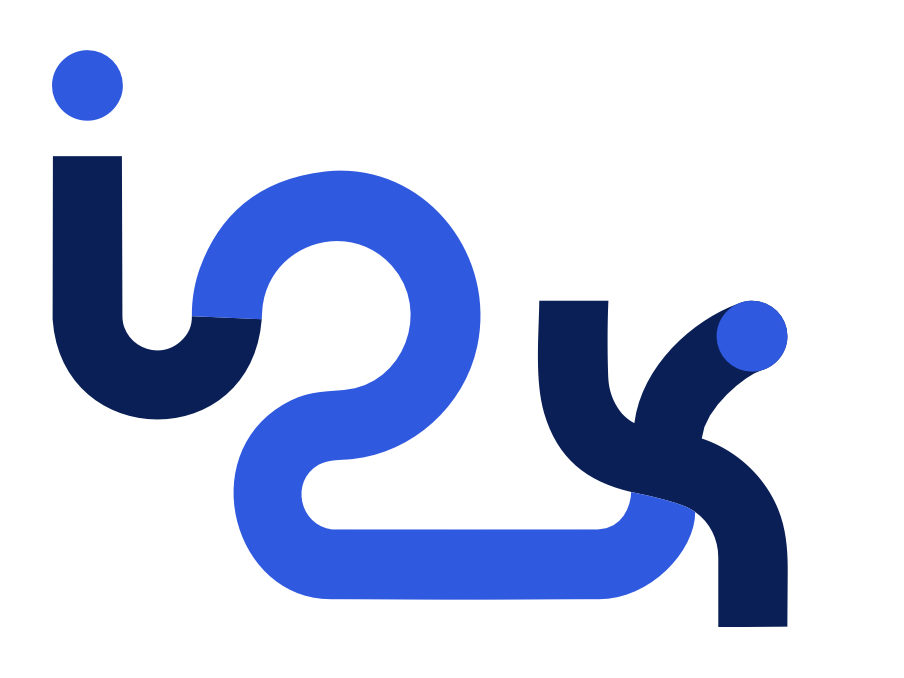

The objective of i2X – Intelligent Implementations of the European EHR Exchange Format is to showcase in-service, sustainable implementation of the European Electronic Health Record Exchange Format (EEHRxF) in healthcare settings. To showcase that the EEHRxF brings value to patients and citizens, without introducing undue burden on health professionals and health systems. The result of this action will be real-world demonstrators of the EEHRxF that will guide other stakeholders to adopt the EEHRxF, reduce the costs for its adoption and produce lessons learned. Real world demonstrators should be driven by both Industry and User incentives to build solutions and services that provide solutions to real life issues.
The Joint Action Prevent Non-Communicable Diseases – JA PreventNCD is designed to address this challenge by supporting strategies and policies that aim to reduce the burden of cancer and NCDs, focusing on both personal and societal risk factors. The project’s major goal is to minimize fragmentation and duplication of efforts and to engage national authorities at various levels to enhance the impact of actions taken. A significant aspect is the rigorous evaluation of these actions to assist authorities in prioritizing the most effective prevention strategies. This will contribute to achieving global targets in reducing the NCD burden. A key objective is to tackle social inequalities by addressing the root causes of NCD risk factors and adopting a life-course approach. The project aligns with the objectives of Europe’s Beating Cancer Plan and the “Healthier Together – EU NCD Initiative.”
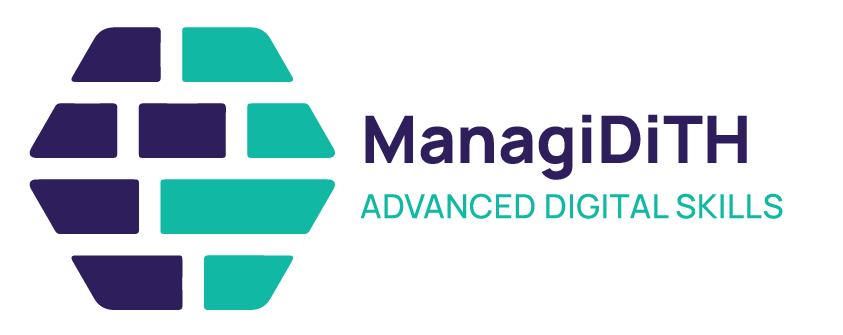

ManagiDiTH is a European Union funded project on developing a Joint Master’s programme on “Managing Digital Transformation in the Health Sector” with the aim of creating a new master’s degree curriculum that equips healthcare professionals with the competencies needed to develop digital services in the health sector. ManagiDiTH’s mission is to advance digital health education and contribute to the implementation of the European Health Data Space. AUTH’s active involvement underscores its dedication to driving innovation and excellence in healthcare education within the European landscape.
The research project ‘ONCODIR: Evidence-based Participatory Decision Making for Cancer Prevention through implementation’ will identify risk factors associated with colorectal cancer and will integrate multidisciplinary research methods and technologies (including health policy analytics, artificial intelligence and decision support theories) to deliver evidence-based and personalised recommendations on colorectal cancer prevention.
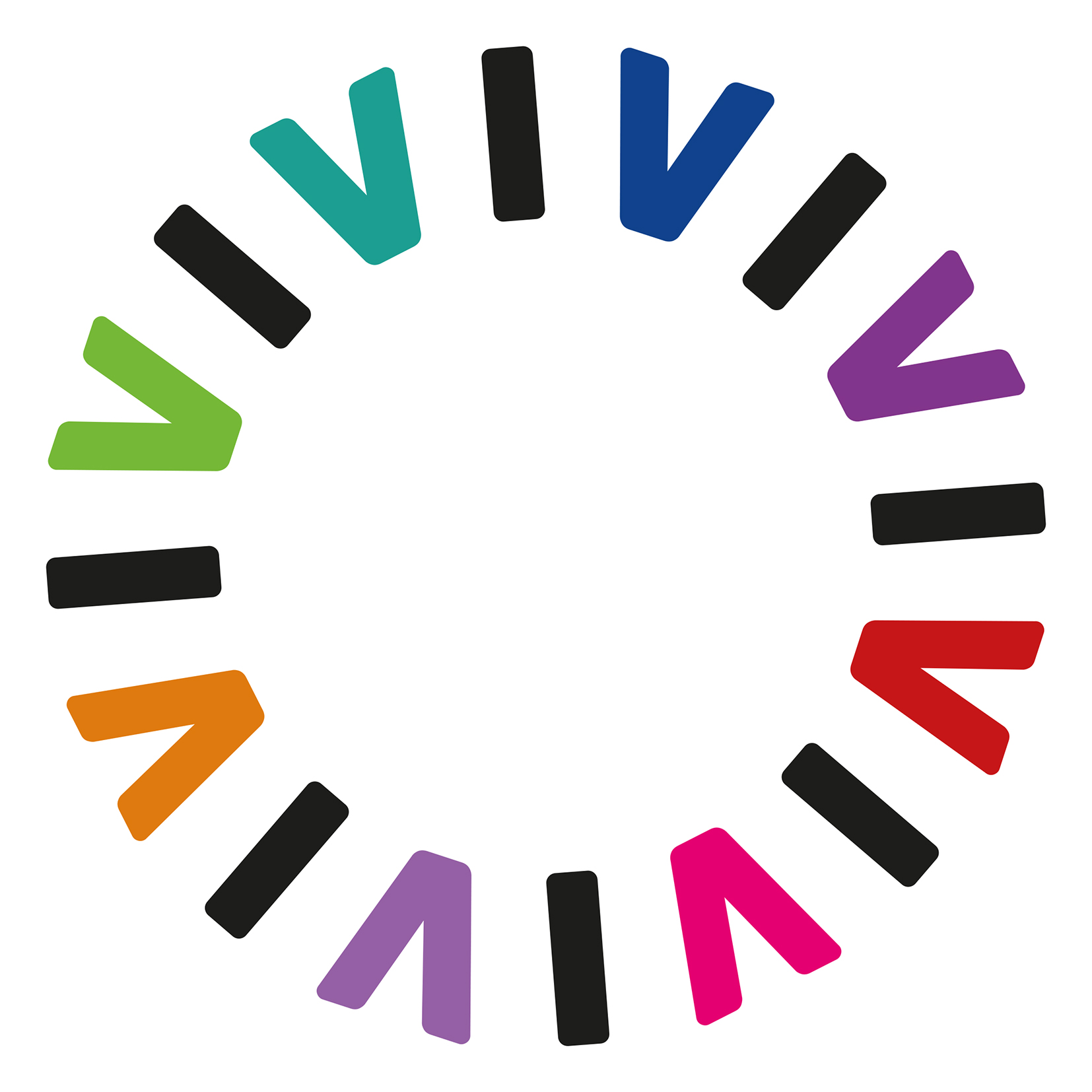

The aim of the OriON – Joint Action on Contribution to the Cancer Inequalities Registry to Monitor National Cancer Control Policies is to make available a mainly qualitative analysis of the national cancer control situation in the Member States, including the state of play of implementation of Europe’s Beating Cancer Plan at national level in a comparable and frequently updated form as well as to make available data and insights on socio-economic inequalities to complement and enhance the analysis for the Cancer Inequalities Registry. OriON will seek synergies with the Cancer Inequalities Registry; together, these will provide a consolidated view of the national cancer control landscape across the EU and resulting inequalities will assist in targeting investments and interventions at EU, national and regional level to address trends, disparities and inequalities between MS and regions.
The PATHeD project developed, tested and brought into production a first version of a citizen access mobile app toolkit together with enhanced data sharing capabilities for the European Union and implementing Member States. The project tested a mobile app reference implementation for citizen access to their translated Patient Summary, deploy the tools most appropriate for the national eHealth infrastructures and provide the first evaluation of the extended MyHealth@EU infrastructure in production by June 2024.
PHOREVER project – PHOtonic integrated OCT-enhanced flow cytometry for canceR and cardiovascular diagnostics enabled by Extracellular VEsicles discrimination
The POTENTIAL project, in alignment with the eIDAS2 Regulation, is developing a secure European Digital Identity Wallet to safeguard citizens’ data and enhance digital interactions. It supports use cases such as online identity verification, cross-border bank account opening, digital driving licences, and secure eSignatures. The ePrescription use case pilots cross-border citizen identification in pharmacies, enabling users to retrieve ePrescriptions via mobile devices, present identifiers for selected ePrescriptions, or share full ePrescriptions with pharmacists. The project will also pilot online pharmacy use cases for patient identification and the presentation of a selected ePrescription by the user.
The RETENTION Project is a European Union’s H2020 funded project conceived to support clinical decision making, clinical monitoring and data-driven interventions for heart failure patients in need of ventricular assist devices (VAD) and patients who received a heart transplant.
The overall aim of the SMART BEAR project is the development of an innovative platform to support the healthy and independent living of elderly people with Hearing Loss, Cardiovascular Diseases, Cognitive Impairments, Mental Health Issues, Balance Disorders, and Frailty. Digital tools hold the promise for many health benefits that can enhance the independent living and well-being of the elderly. Motivated by the above, the aim of the SMART BEAR platform is to integrate heterogeneous sensors, assistive medical and mobile devices to enable the continuous data collection from the everyday life of the elderly, which will be analysed to obtain the evidence needed in order to offer personalised interventions promoting their healthy and independent living
SMART BEAR will leverage big data analytics and learning capabilities, allowing for large-scale analysis of the above-mentioned collected data, to generate the evidence required for making decisions about personalised interventions.
The European Digital Innovation Hub for Smart Health: Precision Medicine and Innovative E-health Services (smartHEALTH) is a one-stop-shop where SMEs, startups, mid-caps, and the public sector can get help to improve business & production processes and products & services by means of digital technology. Our hub offers highly specialized expertise in the flagship areas of precision medicine, cancer, medical image analysis, public sector digital transformation and infrastructure. This expertise is established through R&D excellence at national and international level. smartHEALTH brings together all the main R&I leaders of the Greek ecosystem in the field of digital and smart health to facilitate the digital transformation of the private and public sector.
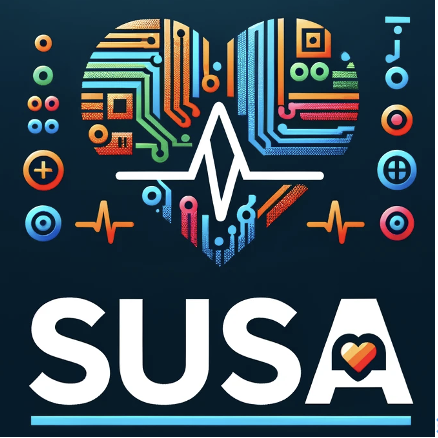

Sustainable Healthcare with Digital Health Data Competence (SUSA) aims to address the pressing need for advanced digital skills in healthcare, preparing professionals to navigate a rapidly digitizing landscape and empowering them to leverage data for sustainable healthcare solutions. The consortium has 12 higher education institutions from 9 European countries complemented with five SMEs, a hospital and a research center. The initiative is set to deliver 46 revamped and integrated bachelor’s and master’s degree programs, complemented by 16 modular learning opportunities for lifelong learning. These innovative educational offerings are designed to produce 6558 graduates and upskill 660 professionals with specialized digital competencies critical to advancing healthcare practices across Europe.
The Second Joint Action Towards the European Health Data Space – TEHDAS2 prepares the ground for the harmonised implementation of the secondary use of health data in the European Health Data Space – EHDS.
The TEHDAS2 joint action started in 2024, and it will build on the work of previous TEHDAS1(open in new window) and other European projects. TEHDAS2 is carried out by 29 European countries and co-ordinated by the Finnish Innovation Fund, Sitra. The project started in May 2024, and it will end in December 2026. It is based on the European Commission’s EU4Health Programme.
TeleRehaB aims for developing an AI-based Decision Support System, building upon/expanding on previously developed platforms, tools, obtained results and know-how (i.e., HOLOBALANCE, SMART BEAR projects), to support effective and affordable treatment for patients at risk of fall for both in clinic and remote home-based care.
The Xpanding Innovative Alliance (XiA) project is dedicated to advancing interoperability within the healthcare sector, particularly in anticipation of the European Health Data Space (EHDS) regulation. Through a comprehensive educational initiative, XiA aims to address the skills gap in advanced digital health interoperability standards among healthcare providers, digital health solution providers, and individuals. By developing high-quality educational materials and courses, XiA seeks to equip stakeholders with the necessary skills to embrace EHDS-related standards and foster a culture of interoperability. Utilizing a multi-disciplinary approach, the project will offer online educational content and immersive learning experiences tailored to the needs of HCPs and organizations. This initiative will not only educate a large workforce in advanced interoperability standards but also establish partnerships with other institutions to amplify its impact. The primary objectives of XiA include developing personalized learning pathways, accrediting educational initiatives, and promoting the integration of digital transformation, interoperability, and cybersecurity skills.
SCOLIOSIS project designed and implemented an automated, non-invasive system for scoliosis screening through image processing techniques. The system can be used for the initial examination of patients and their referral for detailed examination, using conventional diagnostic methods, when this is deemed necessary. SCOLIOSIS was developed to facilitate patients in conveniently and securely inputting their measurements via its dedicated mobile application while doctors can monitor their data by a web application with ease, logging in through their secure accounts. By harnessing the power of mobile technology, it empowers individuals to actively participate in the measurement process, fostering a patient-centric approach to data collection. Pilot trials were implemented based on a clinical protocol for data collection by the method of simulation as well as with real patients in the context of monitoring a broader treatment regimen. This research was carried out as part of the project «SCOLIOSIS» (Project code: ΚΜΡ6-0083649) under the framework of the Action «Investment Plans of Innovation» of the Program «Central Macedonia 2021-2027», that is co-funded by the European Union and Greece.
Copyright © 2025 Athens Digital Health Week